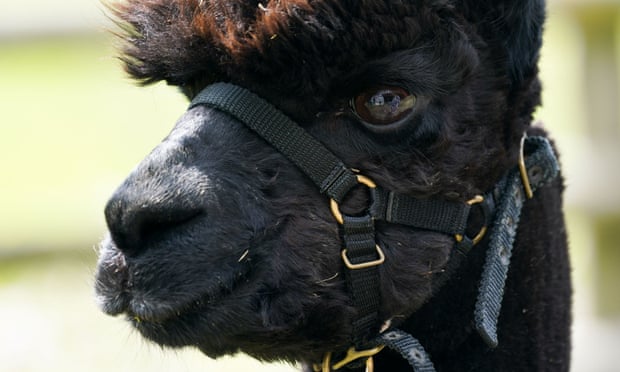Opinion: Geronimo cannot be saved without sacrificing the UK’s food standards

It’s August and an alpaca craze has overtaken British politics. After a chaotic few years banging on about Brexit and Covid, this summertime story has captivated the nation.
Officials have ordered Geronimo, an alpaca imported from New Zealand, to be put down after twice testing positive for bovine tuberculosis. But alpaca owner, Helen Macdonald, claims the tests are false. The Government is remaining firm. Environment Secretary George Eustice has called it an “arduous but necessary endeavour”. Indeed, it is hard to see much of an argument against euthanizing an infected animal.
Yet animal rights activists have backed Macdonald. Tens of thousands have signed a petition calling for a stay of execution. Stanley Johnson has urged his son to stop the “murder” while there are calls on animal lover Carrie Johnson to intervene. On Monday afternoon, there was a threat both people and alpacas would march on Downing Street. Lucky for Eustice, the meagre turnout meant he didn’t need to borrow the whip that once sat on Gavin Williamson’s desk to keep the animals in line.
Read more: Truss: UK has made ‘great progress’ in New Zealand free trade deal negotiations
This is all a tragic affair. Nobody wants to put down an animal. But nor can we risk not taking TB seriously. It is often asymptomatic, particularly in the early stages, but a dangerous virus. It can take months or years to reach the fatal stage. In the meantime some animals experience the likes of diarrhoea, fever, and pneumonia. It can also spend all that time passing along the fatal virus to other animals, and potentially even humans.
Anyone who opposes putting down Geronimo is not an animal rights activist. They are monsters who want more animal suffering. These people should hang their heads in shame.
Geronimo may be cute but he is not special. Each week there are more than 500 cattle culled due to infection in England. Geronimo has already got two tests that, according to officials, have a less than 1 per cent chance of false positive. The owner has spent tens of thousands of pounds and sought every avenue of appeal over three years.
We cannot make an exception to strict biosecurity rules for the sake of a social media storm and demands by members of the Prime Minister’s family. It would be so unbelievably insulting to farmers who have lost livelihoods after being forced to put down virus-ridden animals for one to get an exception.
In an ironic twist, many of the same people who criticised other countries’ animal welfare standards are now clamouring for this alpaca to be saved. This includes Roger Gale MP, who backed an amendment that would have required other countries to follow domestic UK animal standards to trade, now stating the Gerimimo slaughter is “probably unnecessary”. Stanley Johnson also expressed concern about trade deals.
Indeed, part of the reason to act swiftly against biosecurity risks is to safeguard Britain’s reputation for animal welfare and safety standards. It has taken decades to rebuild confidence after BSE and foot-and-mouth disease scares. To this day, the UK cannot export beef to Lebanon or South Korea, lamb to the US or China or pork to Russia or Argentina.
It’s cases like Geronimo that send a chill down the spine of Britain’s trade partners. How can other countries have faith in Britain’s biosecurity rules when it takes years to deal with a single case of TB?
It’s difficult to imagine a Geronimo controversy on this scale anywhere else in the world. Britain is a nation of animal-lovers. But that cannot stop us from making tough decisions.